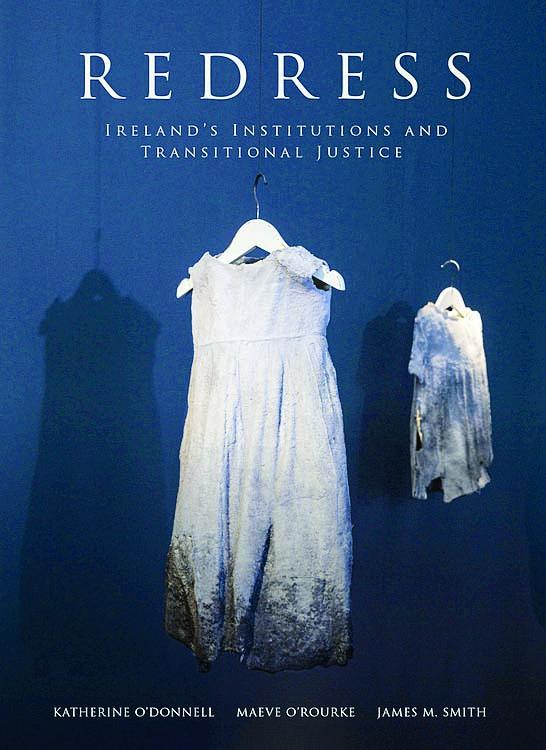September 21, 2022

The Boston College Center for Irish Programs was co-host, along with the BC Center for Human Rights and International Justice, in early September to the American launch of “REDRESS: Ireland’s Institutions and Transitional Justice,” a book of essays based on a 2018 Boston College conference examining the controversy over the Magdalene Laundries and other institutional abuses in Ireland (both North and South).
The event featured talks by the book’s editors, Boston College Associate Professor of English and Irish Studies James Smith; Katherine O’Donnell, a professor of philosophy at University College Dublin; and Maeve O’Rourke, a faculty member at the Irish Center for Human Rights. The three have researched and written extensively on the notorious Magdalene Laundries – in which women were confined under dubious circumstances and suffered physical and emotional abuse – and in 2021 were among the co-authors of “Ireland and the Magdalene Laundries: A Campaign for Justice” (Bloomsbury/I.B. Tauris).
Revelations about the Magdalene Laundries led to wider disclosures of institutional abuses by the government: mother and baby homes, county homes and workhouses, industrial and reformatory schools, and a closed, secretive adoption system. While government officials and representatives have issued apologies, initiated investigations, and discussed or agreed to compensation for survivors or their families, Smith and his co-editors – who wrote the introduction and each contributed an essay to “REDRESS,” which was published earlier this year in Ireland – say the matter is far from settled: How will Ireland redress this legacy of abuse? What constitutes justice?
“REDRESS” invites us to imagine what true justice might look like if the experiences and expertise of survivors and family members were allowed to lead us to more democratic outcomes,” said Smith. “Drawing upon the principles of transitional justice – the full range of processes and mechanisms associated with a society’s attempts to come to terms with a legacy of large-scale past abuses—the book asks how we might assist survivors and the public to evaluate the state’s responses to our histories of institutional abuse and forced family separation.”
These and related issues were the subject of a November 2018 conference with multiple sponsors, including the Institute for the Liberal Arts, Irish Studies Program, MCAS, and the Center for Human Rights and International Justice. Among the highlights was a keynote address by then-Irish Minister for Children and Youth Affairs Katherine Zappone, who oversaw an investigation of institutional care of unmarried mothers and their babies from 1922-1998, prompted by the discovery of a mass grave of child and infant remains on the site of a former mother and baby home.
Building on the themes of the conference, Smith, O’Donnell, O’Rourke, and other contributors to “REDRESS” examine the structures which perpetuated widespread and systematic abuses in the past and consider how political arrangements continue to exert power over survivors, adopted people, and generations of relatives, as well as controlling the remains and memorialization of the dead.

